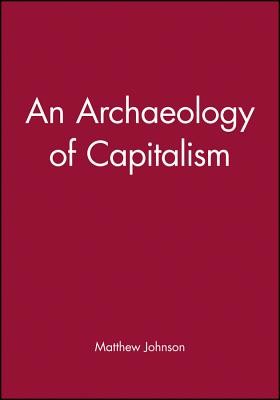
- Išsiųsime per 12–18 d.d.
- Autorius: Matthew Johnson
- Leidėjas: Blackwell Publishers
- ISBN-10: 1557863482
- ISBN-13: 9781557863485
- Formatas: 15.8 x 23 x 1.6 cm, minkšti viršeliai
- Kalba: Anglų
- Extra -15 % nuolaida šiai knygai su kodu: ENG15
Atsiliepimai
Aprašymas
An Archaeology of Capitalism offers an account of landscape and material culture from the later Middle Ages to the beginnings of the Industrial Revolution. In tracing some of the roots of modernity back to the transformation of the countryside, this book seeks an innovative understanding of the transition between feudalism and capitalism, and does so through a unique synthesis of archaeology, economic, social and cultural history, historical geography and architectural history.
Medieval and early modern archaeology has in the past focused on small-scale empirical contributions to the study of the period. The approach taken here is both wider-ranging and more ambitious. The author breaks down the dividing lines between archaeological and documentary evidence to provide a vivid reconstruction of pre-industrial material life and of the social and mental processes that came together in the post-medieval period in the transition towards modernity. Matthew Johnson is careful to avoid a simplifying evolutionary explanation, but rather sees the period in terms of a diversity of social and material practices evident in material traces - traces that survive and that, when reused in different contexts, came to mean different things.
EXTRA 15 % nuolaida su kodu: ENG15
Akcija baigiasi už 4d.21:06:54
Nuolaidos kodas galioja perkant nuo 10 €. Nuolaidos nesumuojamos.

- Autorius: Matthew Johnson
- Leidėjas: Blackwell Publishers
- ISBN-10: 1557863482
- ISBN-13: 9781557863485
- Formatas: 15.8 x 23 x 1.6 cm, minkšti viršeliai
- Kalba: Anglų Anglų
An Archaeology of Capitalism offers an account of landscape and material culture from the later Middle Ages to the beginnings of the Industrial Revolution. In tracing some of the roots of modernity back to the transformation of the countryside, this book seeks an innovative understanding of the transition between feudalism and capitalism, and does so through a unique synthesis of archaeology, economic, social and cultural history, historical geography and architectural history.
Medieval and early modern archaeology has in the past focused on small-scale empirical contributions to the study of the period. The approach taken here is both wider-ranging and more ambitious. The author breaks down the dividing lines between archaeological and documentary evidence to provide a vivid reconstruction of pre-industrial material life and of the social and mental processes that came together in the post-medieval period in the transition towards modernity. Matthew Johnson is careful to avoid a simplifying evolutionary explanation, but rather sees the period in terms of a diversity of social and material practices evident in material traces - traces that survive and that, when reused in different contexts, came to mean different things.


Atsiliepimai